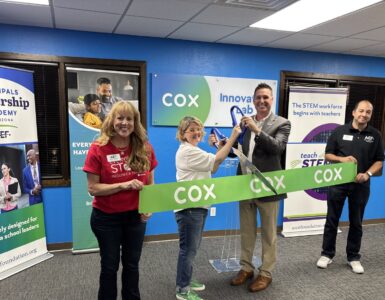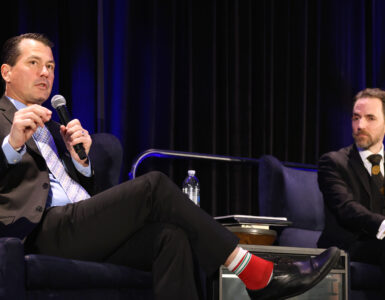The jobless rate for veterans fell to 3.5 percent in 2018 — its lowest rate since the turn of the decade. Since 2011, the jobless rate for veterans has steadily declined from a rate of 9.9 percent to its current low due in part to available employment and training programs. For example, 156,000 transitioning service members participated in a U.S. Department of Labor employment workshop last year.
However, civilian jobs for veterans aren’t always paired with generous wages. According to a study by the Economic Policy Institute, one in five veterans gets paid less than $15 an hour. So, although veterans are obtaining jobs, they aren’t necessarily high-wage jobs that can comfortably sustain a citizen throughout his or her life.
The Arizona Corporate Council on Veterans Careers (ACCVC), in partnership with Cisco and an assemblage of other tech companies, seeks to address that issue. Through a program called CyberVetsUSA, the conglomeration is providing free training in high-demand skills for veterans in Arizona.
CyberVetsUSA is designed to expedite the job process for transitioning service members into high-demand, high-wage jobs in technology. Its online resources and flexible 12-to-14 week schedule make the program an accessible tool for veterans.
“More than one in 10 adult Arizonans is either a veteran or currently serving, so that’s about 650,000 or so veterans who are currently serving or are in reserve,” said Hal Pittman, founder and co-chair of the Arizona Corporate Council on Veteran Careers. “The program is open to a large swath of the population; it just so happens that Arizona has a high percentage of veterans within its population. So there is a need for these jobs, and we have the workforce that’s available to do the training program.”
Its industry partners, including Cisco, Amazon Web Services, NetApp, Palo Alto Network and Fortinet offer direct connections to potentially lucrative careers. The training also provides participants with an industry certification that can be leveraged for opportunities with other tech firms around the country. This is crucial not only for job-seeking veterans, but also for the Arizona economy.
According to a study conducted by Cisco’s Talent Acquisition Research Team last December, the state has over 13,000 IT job openings — 25 percent of these require a background in cybersecurity. In addition, between 2014 and 2024, mathematical and computer-centric jobs will grow by 29.3 percent, making it the second-fastest growing type of job in the state.
“Veteran unemployment is less than the national average, but the issue is veteran underemployment,” Pittman said. “What you have is individuals who have had a tremendous amount of training and leadership skills, and at, say, age 24, they’ve had responsibility for an organization with twenty people and millions of dollars of equipment, and then they go into the civilian world and they’re an individual analyst. There’s a mismatch between the skills they’ve developed and the roles that they might qualify for.”
The program is also available to the spouses of service members — an important inclusion for a population whose unemployment rate hovered around 24 percent earlier this year. Because spouses generally follow their military service members whenever they relocate, they often face challenges in finding stable job opportunities, Pittman notes. His goal is to have 200 veterans and/or spouses earn cybersecurity certifications in the first year of the program.
Arizona is the fourth state to adopt the CyberVetsUSA program, putting itself at the forefront of veteran recruitment services once again, and the ACCVC has been integral to that success. Founded in 2016, the ACCVC was designed to maximize career opportunities for veterans, military service members and their families. Member companies include APS, USAA, Southwest Gas and Tri-West Healthcare Alliance, which have all fostered job opportunities for the state’s vets.
“One of the things we’re also working on for this year is a guidebook for veteran employee resource groups. It’s really a how-to for companies that employ veterans to develop their employee resource group, and it’s a set of best practices compiled by the companies that already have mature employee networking groups and resource groups in place for veterans,” Pittman said. “The need for these employee networking groups is it provides an informal mentoring cadre of like-minded individuals — potentially who have served — that are working together. It actually increases morale and retention for the companies that have these programs.”
“The timing of this launch could not be better as Arizona continues to attract more and more tech and cyber-based businesses with a shortage of qualified individuals to fill the positions,” said Glenn Hamer, president and CEO of the Arizona Chamber of Commerce and Industry. “We are thankful to Cisco and the Arizona Corporate Council on Veteran Careers for providing this opportunity to Arizona’s military families to receive this important training to transition to meaningful, and important careers in cyber security.”
















Add comment